
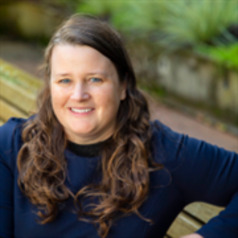
Jennifer Lees-Marshment
Associate Professor of Politics and International Relations, University of Auckland
Jennifer Lees-Marshment is a research-led but practice-oriented cross-disciplinary academic working in the areas of Political Marketing, Political Management, Political Leadership and Public Participation. She is author/editor of 18 books, a world expert in political marketing, recipient of the International Association for Public Participation Research Award for Australasia and A-rated in the New Zealand external research assessment. Jennifer is an academic advisor to TVNZ’s Vote Compass (2014, 2017, 2020, 2023) which has engaged over a million members of the public in discussing politics and policy. She founded the Community of Interest in Employability. (https://canvas.auckland.ac.nz/courses/42445) and is co-convenor of the COI in Research Impact.
Less ![]()

Jennifer MacRitchie
Research Lecturer in Music Perception and Cognition, Western Sydney University
Dr MacRitchie joined the Music Cognition and Action research program at MARCS Institute in 2014. With a background in both electrical engineering and music, her research focuses on the acquisition and development of motor skills in piano performance. Studies range from looking at movements of novices to experts, from those who have studied music from a young age to those who are rediscovering music in retirement.
Jennifer serves as Associate Editor of Frontiers in Psychology, Performance Science, and is on the editorial board of Musicae Scientiae. She has conducted research in a variety of environments, completing her doctoral work in University of Glasgow's Science and Music Research group, and a postdoctoral position at the Conservatorio della Svizzera Italiana in Lugano, Switzerland.
Jennifer is also an experienced pianist, having performed concertos by Grieg, Shostakovich and Gershwin's Rhapsody in Blue with amateur orchestras in Glasgow, UK, as well as regular performances with chamber groups in the UK, Switzerland and Australia.
Less ![]()

Jennifer May
Betty Fyffe Chair of Rural Health Director of University of Newcastle Dept of Rural Health, University of Newcastle
Clinician/Academic with interest in rural health and rural general practice .Lived and worked rurally for 30 years involved in research, advocacy and service delivery. Director of a rural health multidisciplinary programme .
Less ![]()


Jennifer Meggs
Associate Professor in Psychology, Heriot-Watt University
I have a PhD in resilience and mental toughness in high performance contexts; this addressed the cognitive, behavioural and physiological of mental toughness. I am also an HCPC Sport and Exercise Psychologist practitioner.
Less ![]()

Jennifer Mercieca
Associate Professor of Communication and Director of the Aggie Agora, Texas A&M University
Jennifer Mercieca is an historian of American political discourse, especially discourses about citizenship, democracy, and the presidency. Her scholarship combines American history with rhetorical and political theory in an effort to understand democratic practices. She argues that current views of citizenship rely upon the tragic and ironic views, which do not enable citizens to act to control their government.
Her presidency research argues that we have heroic expectations for the presidency that are both unrealistic and unconstitutional and that these expectations burden the presidency. She is the author of Founding Fictions and the co-Editor of The Rhetoric of Heroic Expectations: Establishing the Obama Presidency.
Her essays have appeared in scholarly journals like Rhetoric & Public Affairs, The Quarterly Journal of Speech, and Presidential Studies Quarterly.
Dr. Mercieca teaches undergraduate and graduate courses on Political Communication, Presidential Rhetoric, Activism, Citizenship & the Public Sphere, Social Movements, Rhetorical Theory, and the History of American Public Discourse. Dr. Mercieca frequently appears as an expert commentator and as a consultant for news stories.
Less ![]()

Jennifer Mitchell
Professor of Neurology, University of California, San Francisco
Jennifer Mitchell is a Professor in the Departments of Neurology and Psychiatry & Behavioral Sciences and the Acting Associate Chief of Staff for Research and Development at the San Francisco VA Medical Center.
Dr. Mitchell's current work is focused on identifying and developing novel therapeutics for drug and alcohol abuse, PTSD, stress, anxiety, impulsivity, and depression and on understanding the neural mechanisms responsible for these disorders. She conducts translational neuroscience research that rests at the intersection of psychology, behavioral pharmacology, and neuroanatomy.
Over the past few years, Dr. Mitchell has worked on the development of psychedelic therapeutics for a range of psychiatric conditions including MDMA for PTSD and psilocybin for demoralization and depression. She is a member of the UC Berkeley Center for the Science of Psychedelics and the UCSF Neuroscape Psychedelics Division and has extensive and diverse experience with human and animal pharmacology, hypothesis-driven neuroscience, human proof-of-concept studies, translational models, and clinical trials.
Less ![]()

Jennifer Montgomery
Faculty of Health Research Associate, Te Herenga Waka — Victoria University of Wellington
I am a registered Occupational Therapist, Clinical Team Leader and Research Associate. I have worked in youth mental health in Ireland and Aotearoa for 8 years.
I am a Research Associate at the Faculty of Health, Te Herenga Waka. I received a Career Development Award from the Health Research Council to complete a research project titled; "To what extent is trauma-informed care implemented in practice, policies and models of care in Oranga Tamariki Care and Protection residences?"
My research focuses on how the mental health needs of young people in Oranga Tamariki care and protection system are understood and supported from a trauma-informed systemic perspective. My clinical, leadership and research work is driven by my passion for supporting youth and communities who have experienced psychological trauma and advocating for a shift towards culturally safe, trauma-informed care in healthcare and State Care systems.
Less ![]()
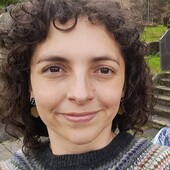


Jennifer O'Keeffe
Doctoral Candidate, Johns Hopkins Bloomberg School of Public Health, Johns Hopkins University
Epidemiologist and Public Health Professional focused on humanitarian settings. Doctoral Candidate in International Health.
Less ![]()
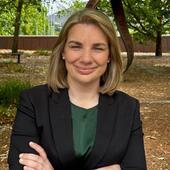
Jennifer Parker
Adjunct Fellow, Naval Studies at UNSW Canberra, and Expert Associate, National Security College, Australian National University
Less ![]()

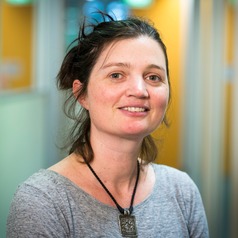
Jennifer Power
Research Fellow at Australian Research Centre in Sex, Health and Society, La Trobe University
Jennifer is a Research Fellow at the Australian Research Centre in Sex, Health and Society, La Trobe University. Her current areas of research are: HIV, sexuality and gender. She also has a research background in lesbian, gay, bisexual and transgendered parenting and family studies.
Less ![]()
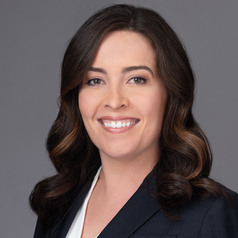
Jennifer Raynor
Assistant Professor of Natural Resource Economics, University of Wisconsin-Madison
Jennifer Raynor is an Assistant Professor of Natural Resource Economics at the University of Wisconsin-Madison. Before entering academia, she conducted policy-relevant economic research for the U.S. federal government for nearly a decade, most recently at National Oceanic and Atmospheric Administration Fisheries.
Her research focuses on improving the efficiency and sustainability of fisheries and wildlife management, primarily using methods from economics, data science, and remote sensing. She strives to inform the legislative decision-making process and works closely with state and federal resource managers to design and evaluate conservation policies.
Jennifer serves on the Board of Trustees for Global Fishing Watch, and her research has appeared in top journals such as Science and The Proceedings of the National Academy of Sciences. Her work has also been featured in major national and international news outlets, such as The Atlantic, The Associated Press, The Washington Post, The Economist, National Geographic, Scientific American, and Smithsonian Magazine.
Less ![]()

Jennifer Regan-Lefebvre
Professor of History, Trinity College
Jennifer Regan-Lefebvre is the chair of the Trinity College Department of History and a historian of modern Britain, Ireland, and British imperialism. She is the author of Imperial Wine: The British Empire and the Making of Wine's New World (University of California Press, April 2022), which won the André Simon Award. Her work combines political, economic, and cultural approaches, and puts wine history in dialogue with colonial history. She is currently co-editing the six-volume Bloomsbury Cultural History of Wine, with Charles Ludington. She is President of the Northeast Conference of British Studies.
Regan-Lefebvre's earlier work investigated the experience of the Irish in the British Empire, and particularly the intersections of nationalism, imperialism, and colonialism. Her first book was a biography of the Irish Quaker nationalist, and president of the 1894 Indian National Congress, Alfred Webb. Cosmopolitan Nationalism in the Victorian Empire revealed a strain of Irish nationalism that was globally-minded, civic, and committed to imperial reform. She also edited and published the memoirs of J. F. X. O'Brien, revealing his radical engagements in France, New Orleans, and Nicaragua before his entry into Fenian politics.
Regan-Lefebvre teaches widely across British and world history and enjoys developing new classes to stimulate students' interest in the past and to build their skills as historians and communicators. Her classes include an introductory British history survey, seminars on British cultural history, wine history, Irish history, and historical networks, and an experiential course in parliamentary debate. She has been particularly proud to supervise a number of senior thesis writers in undertaking archival research in the UK. Her former Trinity research students have gone on to pursue graduate degrees in history at Cambridge, Yale, and Carnegie Mellon.
Regan-Lefebvre has also written for Decanter and VinePair, and worked as a historical consultant for heritage and wine organizations. She teaches a free, open, online course on the history of wine, available through Trinity EdX. For her scholarship and educational impact, Regan-Lefebvre was named one of the "Future 50" of the global wine industry by the Wine and Spirits Education Trust and the International Wine and Spirits Competition in 2019. She holds a WSET Level 3 Award in Wine.
Less ![]()

Jennifer Routledge
PhD Candidate, Environmental and Life Sciences, Trent University
Working under the supervision of Dr. Paul Szpak, in the Trent Environmental Archaeology Lab at Trent University, I use stable isotope analysis to reconstruct the paleoecology of circumpolar megafauna. Through comparisons of archaeological and modern samples we gain insights regarding the impacts of modern climate change. A deep-time perspective on the environment adds value to the climate discussion by establishing a baseline for ecology in an anthropogenically unaltered Arctic and allows for comparisons between modern impacts and outcomes resulting from past climate anomalies.
Prior to embarking on my PhD studies, I completed a Master's and a Bachelor of Science in Anthropology.
Less ![]()
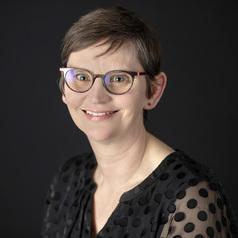
Jennifer Rowntree
Associate Professor in Ecological Genetics, School of Biological and Marine Sciences, University of Plymouth
Less ![]()

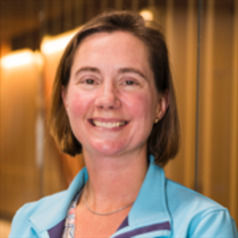

Jennifer Sevin
Visiting Lecturer in Biology, University of Richmond
Sevin, an expert in ecology and conservation biology, has worked at the University of Richmond since 2017. Sevin enjoys engaging her students in real-world issues. She led a project to install pollinator gardens on campus and also raised and released monarchs with her students as part of an international conversation effort. Her students have also taken part in the national camera trapping effort called SnapshotUSA with the Smithsonian Institution and collaborated with other students at North Gujarat University in India to address the increasing issue of human-sloth bear conflict.
Less ![]()
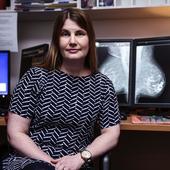
Jennifer Stone
Principal Research Fellow, School of Population and Global Health, The University of Western Australia
Less ![]()
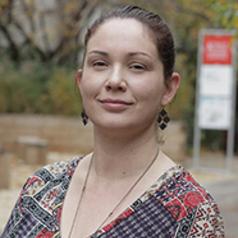
Jennifer Summers
Senior Research Fellow, University of Otago
Dr Jennifer Summers is an Epidemiologist, Statistician and Medical Historian.
PhD, AKC, DHMSA, FRHistS, PGDPH, PGCAP, BSc, CStat, FHEA, MRSNZ
Less ![]()
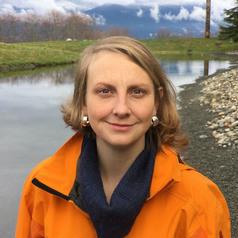
Jennifer Sunday
Canada Research Chair, Global Change BIology, McGill University
Jennifer Sunday is a Canada Research Chair at McGill University, and Research Associate at Hakai Institute, specializing in understanding biodiversity responses to climate change through range shifts, adaptation, and changing ecological interactions. Her work focusses on advancing our predictive understanding of climate change impacts, how conservation action can improve climate resilience, and ways to implement genomic technologies to track biodiversity at large scales.
Less ![]()

Jennifer Tosti-Kharas
Professor of Management, Babson College
Jennifer Tosti-Kharas is the Camilla Latino Spinelli Endowed Term Chair and Professor of Management at Babson College. Her research on meaningful work, work as a calling, and employee sustainability efforts has been published in top journals, covered in international news outlets, and recognized with Best Paper awards by academic publishers and the Academy of Management. She is the co-author, along with Christopher Wong Michaelson, of Is Your Work Worth It? She has also co-authored a digital, interactive textbook, Organizational Behavior: Developing Skills for Managers and co-edited The Handbook of Research Methods in Careers. A former management consultant, Jen works with both companies and individuals to craft meaningful careers and appreciate the risks and rewards of work as a calling. She holds a B.S. in Economics from the Wharton School of the University of Pennsylvania, and a Ph.D. in Management with an emphasis on Organizational Behavior from the Stern School of Business of New York University. She lives outside Boston with her husband and two kids.
Less ![]()

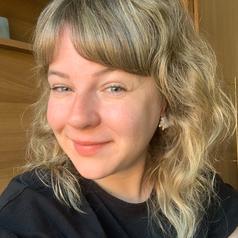
Jennifer Voss
Postdoctoral Researcher, School of Humanities and Performing Arts, De Montfort University
Jennifer Voss has been researching and teaching at DMU since 2015. In 2022, Jennifer completed her PhD in Drama and Film History; a project funded Midlands 4 Cities in partnership with the AHRC. Jennifer’s doctoral research explored women’s performances of emotion during the transition from silent to sound cinema in Britain and the US. Her work uses close performance analysis alongside archival research to offer an interdisciplinary investigation into acting training practices and women’s experiences of screen acting.
In 2023, Jennifer was awarded funding for a postdoctoral research project titled, 'Scrapbooking Screencraft: Exploring Performativity, Agency, and Women’s Screen Acting in the Archive’. This project explores the British fan-made scrapbooks of 1920s and 1930s film stars held within DMU’s Special Collections, and considers them alongside scrapbooks and ephemera held at a number of national archives. Through the creation of digital, performance-based, and site-specific exhibitions, Jennifer’s work seeks to identify, dissect and examine the performative personas of key screen actresses featured within the scrapbooks.
In addition to her academic research and teaching, Jennifer also has extensive experience working in various roles within a number of university archives, including: DMU Special Collections, Hammer Script Archive, Peter Whitehead Archive, and the Indian Cinema Archive.
Less ![]()

Jennifer Watt
Associate Professor of Curriculum, Teaching, and Learning, University of Manitoba
Less ![]()
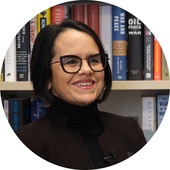

Jennifer Whillans
Lecturer in sociology, University of Bristol
Jennifer Whillans is Lecturer in Sociology at the University of Bristol. Her research expertise is in the temporal organisation and experience of mundane practices, which she examines using both qualitative and advanced quantitative methods. She held a British Academy Postdoctoral Fellowship award to conduct research into the relationship between employment and eating in the UK. She also led the quantitative research on the project Eating Out. She is concerned with sociological debates around poor eating habits, worker well-being and time-squeezed society.
Less ![]()

Jennifer Wolak
Professor of political science, Michigan State University
Jennifer Wolak is a professor of political science at Michigan State University. She studies American political behavior, with a particular focus on political psychology, public opinion, state politics, and gender.
Less ![]()
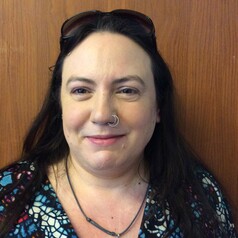
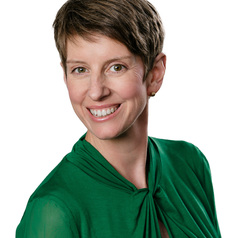
Jennifer Yule
Lecturer in Marketing, The University of Edinburgh
Dr. Jennifer Yule is an interdisciplinary researcher with expertise in mixed methods. Her research interests focus on the mediating roles of trust, expertise and individual differences applied to consumer decision behaviour. She is a lecturer in Marketing at the University of Edinburgh Business School.
Less ![]()

- Market Data





















